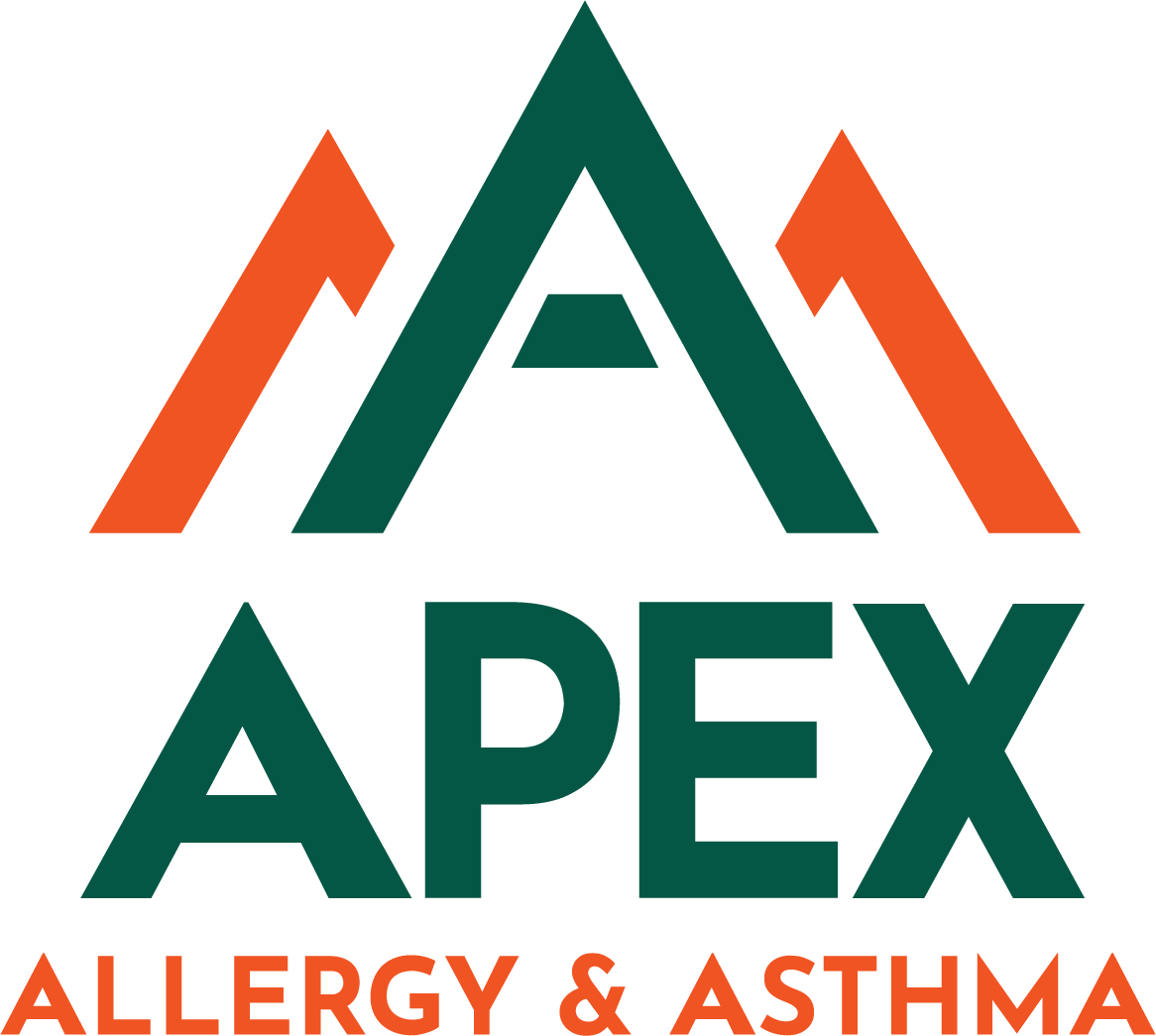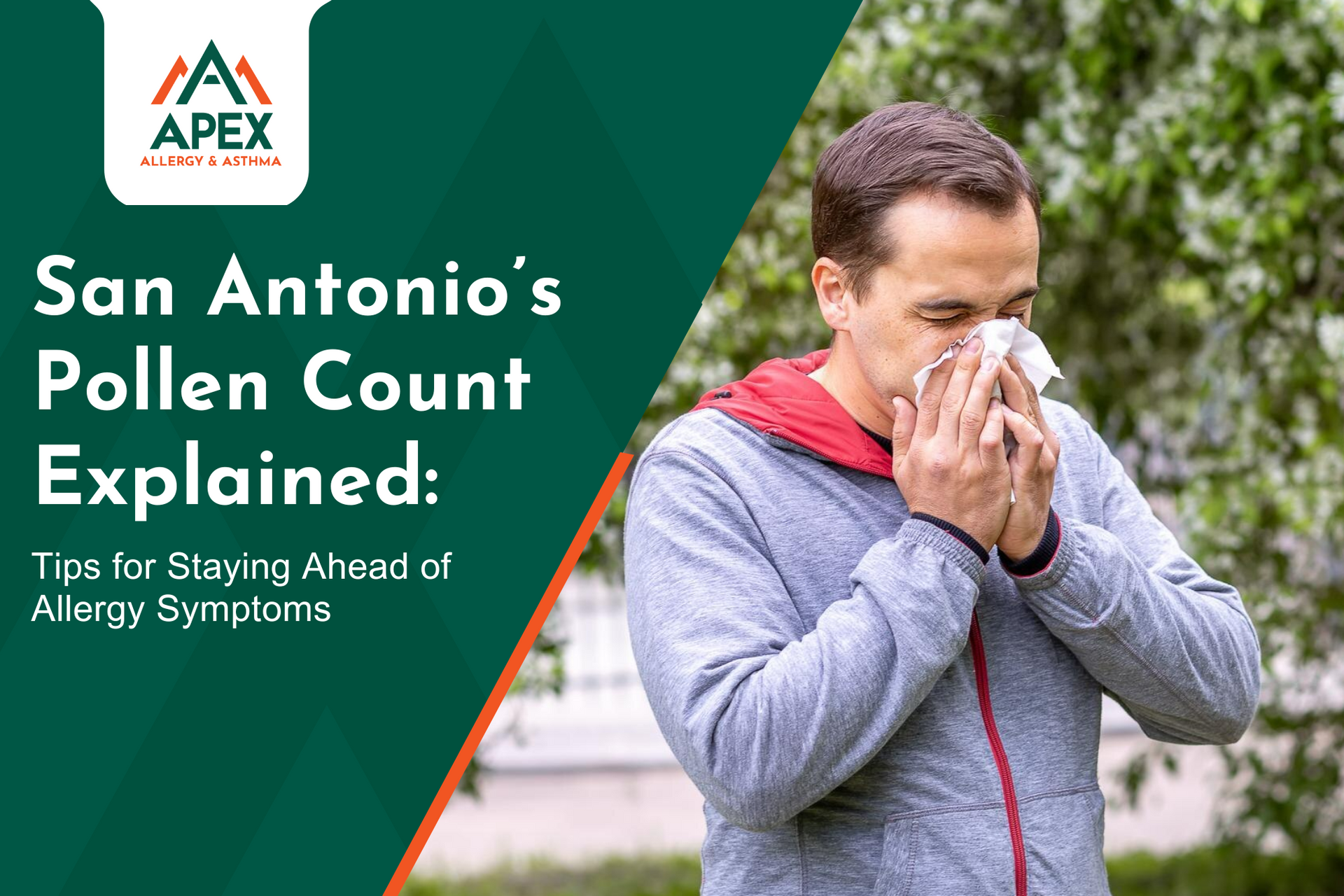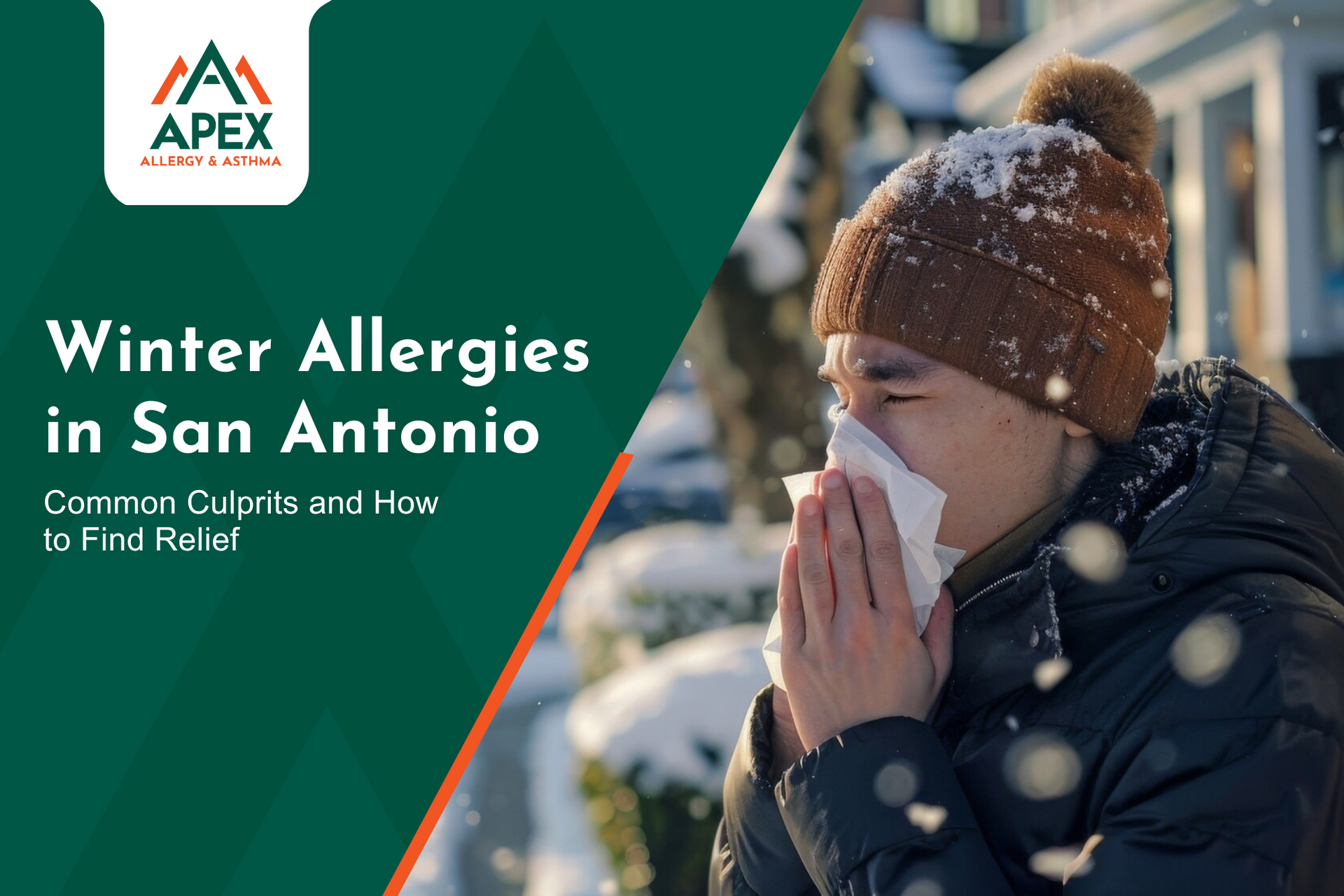A Guide for Parents Dealing With RSV and Asthma in Kids

As a parent, your child's health and well-being always comes first. If your little one experiences adverse health conditions like fever or difficulty breathing, it’s natural to overthink and worry. Worse, if your child is grappling with respiratory conditions like Respiratory Syncytial Virus (RSV) and asthma, the journey becomes even more complicated. These medical conditions put your child in a very uncomfortable and challenging situation, and we fully understand your concern. So we're here to help!
This guide addresses managing RSV and asthma in children, offering valuable information, practical tips, and emotional support to help you navigate these challenges and support your child's recovery from respiratory threats.
Understanding RSV
What is RSV?
The CDC defines Respiratory Syncytial Virus, or RSV, as a respiratory virus affecting people of all ages that causes mild, cold-like symptoms. It is usually not a severe health risk; most people recover in 1-2 weeks. However, in young children, particularly those with asthma, RSV can pose more challenges to respiratory health. The National Foundation for Infectious Diseases (NFID) considers RSV to be “so common that almost all children will have had an RSV infection by their 2nd birthday.” Annually, RSV infects approximately 2.1 million children younger than five years of age in the United States. While the vast majority of these cases do not require hospitalization, RSV should not be taken lightly when it comes to your children.
What Are the Common Symptoms of RSV in Toddlers?
Recognizing the symptoms of RSV is crucial for timely intervention. Common signs include cough, runny nose, fever, and wheezing, exacerbating respiratory issues in children with asthma.
How Do Children Get RSV?
In children, RSV spreads through contact with infected people's respiratory secretions, such as saliva and mucus. It also spreads by touching surfaces contaminated with the virus and touching the face or mouth. Additionally, the virus spreads through the air by coughing or sneezing.
How Can I Prevent My Children from Getting RSV?
To prevent your children from getting RSV, always wash your hands, avoid encounters with sick people, keep your children away from large crowds, disinfect and clean frequently touched surfaces, cover your mouth whenever you sneeze or cough, and don't let anyone smoke around your children.
How Does RSV Affect Children With Asthma?
For children already dealing with asthma, RSV may escalate respiratory distress. Contracting RSV in young children also raises the risk of developing asthma later on. Understanding the interplay between these two conditions is vital for effective management. Asthma is an adverse respiratory condition that makes breathing difficult and is caused by spasms in the bronchi of the lungs. Various factors, such as allergens, exercise, cold air, and stress, can trigger asthma attacks. One of the best ways to manage asthma is to learn its symptoms.
Recognizing Asthma in Children
What Are the Early Signs and Symptoms?
Asthma in children commonly manifests as shortness of breath, frequent coughing, and chest tightness. Being able to identify these signs allows for proactive management.
What Are the Triggers for Asthma Attacks?
Understanding the triggers specific to your child is the key to preventing asthma attacks. Recognizing factors like allergens, pollutants, or stress allows you to mitigate or prevent exposure.
Why Is Asthma Management Important?
Regular monitoring is crucial in minimizing the effects of asthma on a child's daily life. Parents play the main role in ensuring consistent and effective management. Moreover, having a
primary local allergist for your child will aid in asthma management. You will always have support whenever you need it.
The Intersection of RSV and Asthma
What Are the Risks for Children With Asthma?
Children with asthma face an elevated risk when exposed to RSV. Their asthma symptoms may worsen and become chronic because their airways are already inflamed, which worsens RSV symptoms. The combination of these two respiratory challenges requires an all-around approach to care.
What Is the Impact On Respiratory Health?
RSV may lead to severe respiratory issues in children, especially those with asthma. Some of the complications associated with RSV include bronchiolitis and pneumonia. Understanding the potential impact of both conditions is vital for mitigation, prevention, and timely intervention. Moreover, it is important to note that RSV increases the risks of non-asthmatic children developing asthma.
What Is the Importance of Preventive Measures?
Implementing preventive measures, from maintaining a clean environment to promoting healthy habits that bolster respiratory health, is crucial in preventing respiratory illnesses. To keep your child healthy, incorporate fruits and vegetables rich in vitamins E and C into their daily meals and encourage them to engage in physical activities. Additionally, keep them away from air pollutants that may trigger asthma symptoms, like cigarette smoke.
Tips for Parents
Create a Safe Environment
Ensure a clean environment for your child. Minimize exposure to your child’s triggers, such as allergens and pollutants, to reduce the burden on their respiratory system. One example is to keep your windows and doors shut during allergy season. In addition, using a high-efficiency particulate air (HEPA) filter can reduce allergen exposure.
Recognize Warning Signs
Being attuned to subtle changes in a child's breathing patterns or overall well-being allows parents to intervene early and seek timely professional advice from your local allergist.
Consult With an Allergist
Regular check-ups and open communication with an allergist are essential for comprehensive care. Collaboration helps meet your child's unique needs, as you are the best person to express how they feel so your physician can provide the best applicable treatment.
Treatment Options
Medications for RSV and Asthma
Understanding the medications prescribed for RSV and asthma is crucial. Parents should learn the purpose, dosage, and potential side effects of these treatments. Treatment of RSV is largely supportive (staying hydrated, getting plenty of rest, treating the fever). If your child has asthma, consistent use of their prescribed preventive medications is very important, and they will often require increased use of their rescue inhaler during the course of their illness. Always consult your allergist for proper medication use.
Importance of Timely Intervention
When symptoms exacerbate, swift action is vital. Parents should have a clear plan to address worsening symptoms and seek medical attention promptly. If your child has asthma, consult an allergist to create an asthma action plan – a personalized cheat sheet for managing your child's asthma. With crucial information and instructions, this action plan helps other healthcare providers, school faculty members, family, and friends understand your child's condition and properly manage it if needed.
Collaborating With Healthcare Providers
Building a collaborative relationship with your allergist ensures a holistic approach to a child's respiratory health. Regular updates and proactive communication facilitate effective management.
Lifestyle Modifications
Nutrition and Hydration
Parents should prioritize nutritional choices that enhance immune resilience. Incorporate a balanced diet that includes different types of vegetables, fruits, whole grains, lean proteins, and healthy fats. Hydration plays a crucial role in your child's overall health. For children and teenagers, the recommended daily water intake is:
- 4 to 8 years: 5 cups
- 9 to 13 years: 5 to 6 cups
- 14 to 18 years: 6 to 8 cups
The Role of Physical Activity
Regular, moderate physical activity contributes to respiratory health. Encouraging age-appropriate exercise helps strengthen a child's respiratory muscles.
Sleep Hygiene for Respiratory Health
Quality sleep is integral to overall well-being. Creating a conducive sleep environment and maintaining consistent sleep routines can positively impact respiratory health.
Emotional Support for Children
Impact of Chronic Conditions on Mental Health
Living with chronic conditions may take a toll on a child's mental health. Parents should support emotional well-being and provide a positive environment.
Strategies for Emotional Well-Being
Open communication, age-appropriate explanations, and a positive outlook can help children cope with the challenges posed by RSV and asthma.
Encourage Open Communication
Creating an environment where children feel secure in expressing their feelings and concerns fosters a sense of security and trust.
School and Social Considerations
Communicate With Schools and Teachers
Collaborating with educational institutions ensures teachers know a child's condition and provide the necessary support. Maintaining an open line of communication ensures that school faculty stay mindful of your child’s condition. It is essential to share your asthma action plan with the faculty so they know exactly what to do in case of an asthma attack.
Navigate Social Activities
Balancing social activities with respiratory health considerations is essential. Parents should empower their children to participate while being vigilant about potential triggers.
Build a Support Network
Connecting with other parents facing similar challenges may provide invaluable emotional support. Building a community fosters shared experiences and knowledge.
Long-Term Management
Monitor Respiratory Health
Regular check-ups and monitoring of respiratory health as children grow are essential. Adjust management strategies as needed to ensure ongoing support. Always contact your allergist for proper guidance and effective management. This approach reduces RSV or asthma complications.
Celebrate Milestones
Recognizing and celebrating milestones, big and small, fosters a positive mindset and reinforces the resilience of children dealing with asthma. Small victories add to your and your child's morale, ultimately increasing motivation.
Preparation for Seasonal Challenges
Seasonal Variations in RSV and Asthma
Understanding how changing seasons trigger RSV and asthma allows parents to implement targeted preventive measures. RSV season in San Antonio, Texas, begins in September or October and peaks in December or January. Unfortunately, these months coincide with allergy season too. Watch out for potential allergy triggers, such as pollen from mountain cedar trees.
Proactive Measures for Each Season
From winter colds to
summer allergies, parents should proactively address seasonal challenges. Preparedness, like checking the pollen count daily and using a high-efficiency particulate air filter (HEPA filter), minimizes the impact of allergies on respiratory health.
The Importance of Vaccinations
Role of Vaccines in Preventing RSV
Vaccination is a critical tool in preventing the spread of this virus. RSV vaccines are currently available for pregnant women, adults over 60 years old, and infants with certain health conditions. The U.S. Food and Drug Administration recently approved a vaccine that can be administered to pregnant people to protect their babies from RSV through the first six months of life. It’s a single-dose shot from Pfizer called Abrysvo. Beyfortus (Nirsevimab) is also an RSV treatment available for children to help aid in preventing RSV. Approved in 2023, nirsevimab is recommended for all infants less than 8 months of age born during or entering their first RSV season and infants 8-19 months of age at increased risk for severe RSV disease and entering their second RSV season.
Vaccination Schedules for Children With Asthma
Asthmatic children may have specific vaccination needs due to the respiratory distress that certain illnesses may exacerbate, such as pneumonia, influenza, and whooping cough. Children with asthma should be
vaccinated against diseases like these to prevent further complications to their existing condition. Working with healthcare providers to ensure compliance with recommended schedules is crucial.
With this guide provided by Apex Allergy and Asthma, you are now more than ready to face any obstacle in navigating the complexities of RSV and asthma in children. By understanding the conditions and implementing preventive measures, parents, with support from their allergist, can empower their children to lead fulfilling lives despite respiratory challenges.
FAQs about RSV and Asthma
Q: How often should my child see an allergist?
A: Regular check-ups are recommended, especially for children dealing with RSV and asthma. The frequency may vary based on the child's health status and medical recommendations.
Q: Are there specific asthma-trigger foods?
A: Certain foods may act as triggers for asthma symptoms in some people. Identifying and avoiding potential triggers can help manage asthma more effectively.
Q: Can RSV and asthma be outgrown?
A: While some children may outgrow asthma, RSV is a viral infection that resolves with time, typically 1-2 weeks. Consultation with healthcare professionals is crucial for personalized guidance.
Q: Can RSV lead to asthma?
A: Yes, RSV may lead to asthma, especially in children. Studies show that children who contract severe RSV infections are more susceptible to developing asthma later in life. In one study, nearly 1,400 children were tracked for five years, and 90% had swabs or blood samples taken. 54% showed RSV infection in their first year of life. At five years, those infected with RSV had a 21% asthma rate, compared to 16% for uninfected patients.
Q: Does albuterol help RSV?
A: Albuterol alone is not a direct antiviral treatment for RSV. A healthcare professional, such as your
local allergist, assesses the severity of the condition and recommends appropriate interventions.
Ensure Your Child Breathes Easier!
If you searched online for "RSV in asthmatic children" or "RSV and asthma in toddlers" and found this blog, you’re on the right track!
Our board-certified
Apex Allergy and Asthma allergist, Mark Stahl, DO, and his team use safe and effective treatment methods. With their many years of experience, they are ready to provide optimal protection for RSV, asthma, and other similar conditions in the San Antonio area.
Talk to us at (210) 490-2051 or book an appointment that suits your schedule.



